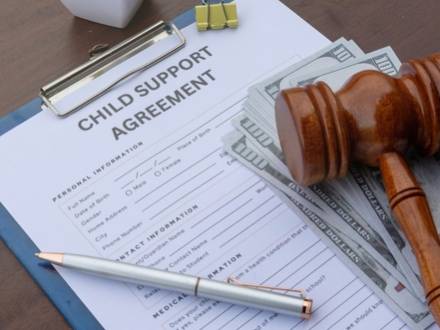Will I Have to Pay Child Support if We Get Divorced in Illinois?
 When parents begin thinking about divorce, one of the first questions that often comes up is about money, especially child support. In Illinois, both parents are legally responsible for supporting their children, even after a marriage ends. Whether you will pay child support, and how much, depends on your income, your ex’s income, and how much time each of you spends with your children.
When parents begin thinking about divorce, one of the first questions that often comes up is about money, especially child support. In Illinois, both parents are legally responsible for supporting their children, even after a marriage ends. Whether you will pay child support, and how much, depends on your income, your ex’s income, and how much time each of you spends with your children.
As of October 2025, Illinois’ child support law is still based on the "income shares" model under 750 ILCS 5/505 of the Illinois Marriage and Dissolution of Marriage Act. With a good Naperville child support lawyer on your side, you can understand child support and every other part of your divorce with ease.
How Does Illinois Decide Who Pays Child Support?
In most cases, the parent who has the majority of parenting time (visitation) receives child support, while the parent with less parenting time pays it. The idea is to make sure both parents pay fairly to the child’s needs, even if one parent provides more day-to-day care.
The court looks at each parent’s net income, which includes wages, bonuses, and self-employment income. It also considers the number of children and how parenting time is divided. If both parents share equal parenting time, support may still be ordered if one earns a lot more than the other.
Will I Pay Child Support If My Spouse Earns More Than I Do?
This is one of the most common questions in divorce consultations. Many people assume that the parent with lower income will automatically receive child support, but the answer depends on the overall balance of parenting time and financial resources.
If your spouse earns more but you have less parenting time, you may still have to pay support. On the other hand, if you share equal parenting time but your income is much lower, your spouse may be ordered to pay. The system is meant to make sure children have a similar standard of living in both homes.
How Long Do Child Support Payments Last?
In Illinois, child support usually continues until a child turns 18 or graduates from high school, whichever happens later. Parents may also be ordered to pay for college expenses, depending on the family’s financial situation and the child’s educational goals.
Support payments can also be changed if circumstances change. Job loss, a raise, or a major shift in parenting time could justify raising or lowering payments. Either parent can request a review by filing a motion with the court.
What Does Child Support Cover?
Child support is meant to cover the basic costs of raising a child, including housing, food, and clothes. Courts may also make parents pay for health insurance, uncovered medical costs, daycare, and extracurricular activities. Each family’s child support order is different.
Contact a DuPage County, IL Divorce Lawyer
If you are thinking about getting a divorce and have questions about child support, contact a Naperville, IL divorce attorney at Pesce Law Group, P.C.. With nearly 20 years of experience, our firm offers free consultations and practical guidance for every step of your case. Call 630-352-2240 today to learn more.











 630-352-2240
630-352-2240



